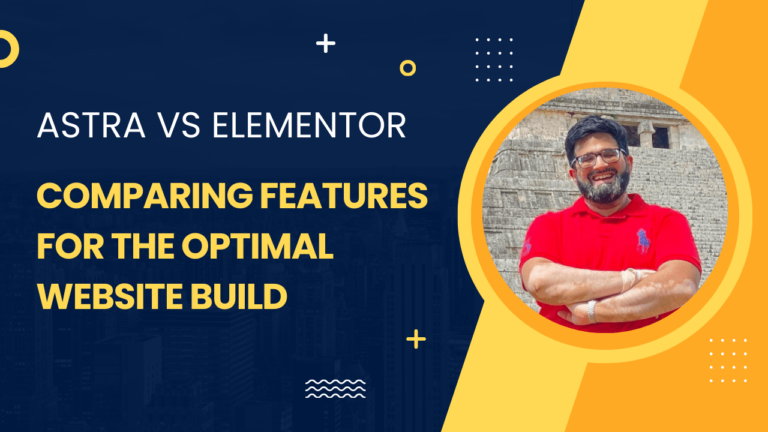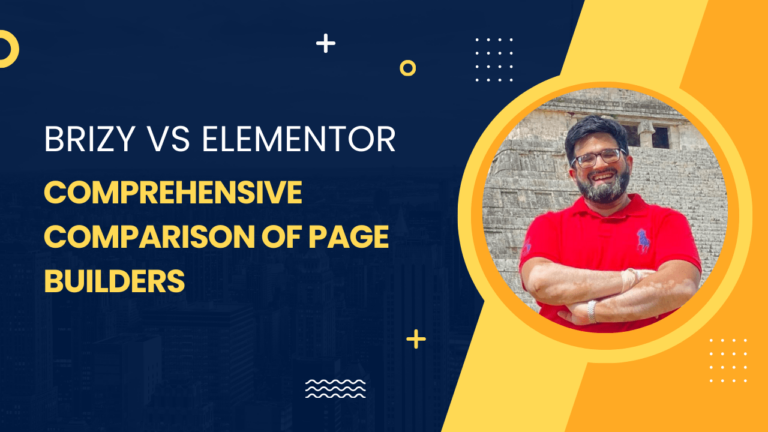Genesis Framework Review: Is It Still The Best in 2024?
The Genesis Framework provides you with a strong foundation for building websites on WordPress. As a theme framework, Genesis offers a secure and search engine optimized (SEO) base for developing WordPress sites. In this Genesis Framework Review we go over why this theme should be part of your WordPress collection.
Key Points:
- Strengths: Genesis boasts efficient code quality and SEO optimization. Its reputation for high performance sets a solid ground for both developers and beginners.
- Flexibility: A diverse range of child themes provides you with ample design options. This versatility means you can tailor your site’s aesthetics to your preference without sacrificing functionality.
- Community & Support: Access to a supportive community and extensive documentation can ease your development process, especially when handling complex customizations.
Considerations:
- Updates: Regular updates ensure compatibility with the latest WordPress versions.
- Learning Curve: New users may require some time to familiarize themselves with its structure and hooks.
Features of Genesis Framework:
- SEO Optimization: Your site’s search rankings can benefit greatly from Genesis’s efficiency in SEO, helping ensure your content reaches its intended audience.
- Security: Developed with a focus on security, Genesis reduces your site’s vulnerability to web threats.
- Customizability: You have the flexibility to stylize your site with child themes without disrupting the core functionality.
- Responsive Design: All themes are mobile-responsive, ensuring that your site is accessible across various devices.
A mainstay in the WordPress community, Genesis is backed by StudioPress and has been employed on numerous websites worldwide. By choosing Genesis, you adopt a framework that is continually updated to adhere to WordPress coding standards and web practices.
Why Choose Genesis:
- Often recommended for its reliable codebase.
- Provides a plethora of child themes that cater to diverse design preferences.
- Known for a substantial global community of developers and users.
When considering the Genesis theme framework for your next project, reflect on how its built-in features can streamline your website’s performance and management. Remember, with Genesis, you’re not just selecting a theme, but a suite of tools designed to enhance your online presence.
Key Features: Genesis Framework Review
When evaluating the Genesis Framework for your WordPress site, pay particular attention to these standout features designed to provide both robustness and ease of use.
Search Engine Optimization (SEO) Capabilities
The Genesis Framework offers in-built SEO settings, which include options for titles, meta descriptions, and breadcrumbs, helping your content rank higher in search engines. It’s compatible with popular SEO plugins like Yoast SEO and supports Schema markup, further enhancing your site’s visibility.
Responsive and Mobile-Friendly Design
Your website will automatically adjust to any screen size, courtesy of Genesis Framework’s responsive designs. This ensures that your site will look great on all devices, enhancing the user experience.
Customization and Flexibility
Genesis allows for extensive customization using the WordPress customizer. You can add custom code or select from a range of custom child themes. It’s highly customizable, enabling you to tailor your site to your exact preferences without being restricted to the defaults.
Security and Performance
Expect optimized code that contributes to fast site speed and performance. Genesis Framework is known for its secure foundations, providing peace of mind in an environment where security is paramount.
Extensive Child Themes Library
Choose from a wide selection of Genesis child themes, including Authority Pro, Magazine Pro, and News Pro. Whether for a blog, business, or e-commerce site, there’s a child theme to fit your niche.
Comprehensive Documentation and Support
Genesis provides thorough documentation and a knowledge base to help you get started and troubleshoot any issues. You will have access to reliable support that assists you in making the most out of the Genesis Framework.
Community and Developer Support
A large community of developers and users ensures that you have access to forums, tutorials, and additional resources. The framework is developer friendly, which makes it easier to find solutions and enhancements.
Updates and Maintenance
Regular updates keep your site’s foundation modern and secure. With Genesis, you receive timely maintenance releases, which are crucial for both security and keeping up with the latest web standards.
Pricing and Licensing
When considering the Genesis Framework for your WordPress site, you should be aware of its pricing structure and the licensing options available to you. The framework offers a straightforward pricing model and various licensing plans tailored to different user needs, including options for developers and agencies.
Genesis Framework Review Pricing Details
- Single Theme Purchase: If you opt to buy a single child theme with the Genesis Framework, the cost typically stands around $100. This offers you a package of one child theme plus the main Genesis Framework.
- Framework Only: The standalone Genesis Framework is priced at $59.95. Remember that using child themes is highly recommended for customization purposes.
Licensing Options and Genesis Pro
- License: The initial purchase of the Genesis Framework or a child theme includes a one-time fee for unlimited use of the product on sites you develop now or in the future.
- Genesis Pro: For users requiring more advanced features and additional themes, Genesis Pro is available. This subscription-based service provides access to all Genesis child themes, future themes, and additional tools for builders.
- Pro Plus Membership: If you’re a developer or run an agency, the Pro Plus membership offers significant value. With a one-time purchase, you gain access to all existing Genesis child themes and any future themes without additional costs.
Advantages and Disadvantages
When considering the Genesis Framework for your WordPress site, it’s essential to weigh its advantages and disadvantages carefully. Here’s a focused look at the pros and cons of using the Genesis Framework.
Pros of Using Genesis Framework
- SEO-Ready: Genesis is built with SEO in mind, ensuring that your website complies with the best search engine optimization practices. This can help your site rank better in search results.
- Flexible Design Options: You have access to a wide array of child themes, which allow for varying design aesthetics while maintaining the core functionality of Genesis.
- Robust Security: The framework is known for its strong focus on security, providing you with peace of mind.
- Frequent Updates: With Genesis, you can expect regular updates that improve functionality and keep your site’s technology current.
- Community and Support: Benefit from a large community of developers and users which means support and resources are readily available.
Cons of Using Genesis Framework
- Learning Curve: If you’re new to WordPress themes and frameworks, Genesis might pose a learning challenge.
- Limited Customization (for novices): Out of the box, customization options may seem limited, especially if you’re not familiar with coding.
- Pricing: While investing in Genesis, it’s important to note there might be additional costs for child themes and developer assistance for more intricate customizations.
Genesis Framework Review and Page Builders
When working with the Genesis Framework, you’ll find that it offers seamless integration with various page builders, which empowers you to create custom layouts and themes without needing to edit code directly.
Compatibility with Popular Page Builders
Genesis Framework is known for its compatibility with leading page builders, making it simple for you to use tools that you are familiar with. It works efficiently with Elementor and Beaver Builder, among others.
- Gutenberg: Genesis is fully compatible with Gutenberg, the default block editor in WordPress. This means you can leverage the native blocks to construct your pages or posts.
- Elementor: With Elementor, you gain a drag-and-drop interface that can be used to design more complex page layouts. This compatibility eases the process for you to add extra widgets and features.
- Beaver Builder: Genesis and Beaver Builder also pair well, allowing you to drag and drop content modules to create your perfect page layout.
These integrations mean that regardless of your preferred page builder, you can expect a smooth, cohesive experience when building your site on the Genesis Framework.
Building Custom Layouts and Themes
The Genesis Framework provides the flexibility needed to create custom layouts and themes efficiently. Its structure is favorable for those who need to construct detailed website designs without cumbersome restrictions.
- Widgets and Layouts: You can place widgets in various areas of your layout, offering a high level of customization while designing your pages, posts, portfolio, or other website sections.
- Custom Themes: For those who wish to develop custom themes, Genesis acts as a solid foundation, ensuring that the themes you craft are robust and SEO-optimized by design.
Using Genesis alongside your chosen page builder simplifies the process of personalizing your online presence, making it more straightforward for you to mold your website to fit your brand’s unique style and requirements.
Comparative Analysis
In this section, you’ll explore how the Genesis Framework holds up against other WordPress theme frameworks as well as standalone WordPress themes. You’ll get a clear perspective on its uniqueness and comparative functionality.
Genesis vs Other WordPress Theme Frameworks
StudioPress’ Genesis Framework is a pivotal player in the market of WordPress theme frameworks. When compared to other frameworks like Divi and GeneratePress, key differences emerge.
- Genesis vs Divi: Genesis focuses on offering a robust, security-focused foundation that prioritizes SEO. It’s recognized for its lean and clean codebase. Divi, on the other hand, is much more design-centric, with a built-in visual builder that allows for extensive customization without the need for coding knowledge.
Feature Genesis Divi Design Focus Minimalistic, developer-friendly Rich, visual-heavy editor Customization Child themes, requires coding knowledge Drag-and-drop editor, no coding needed Performance Fast loading, SEO-optimized Can be heavy, potential for bloat Community Developer-oriented community Large community with varying skill levels - Genesis vs GeneratePress: Both frameworks are renowned for their performance and code quality. However, Genesis has a longer history and a more extensive library of child themes provided by StudioPress, while GeneratePress is known for its lightweight build and being very customizable with less reliance on additional plugins.
Feature Genesis GeneratePress Ease of Use Intermediate level Easy for beginners and experts Code Quality Clean and SEO-ready Lightweight and optimized Customization Without Plugins Child themes Native customization options Pre-designed Templates Wide variety Less extensive but growing
Genesis and Standalone WordPress Themes
When comparing Genesis to standalone WordPress themes, it’s important to remember that Genesis is a framework designed to be extended with child themes. Standalone themes might have design and features built in, requiring you to adopt what’s provided.
- Genesis: Being a framework, Genesis offers a foundational layer that grants you the flexibility and security needed to build a professional website. You have the potential to customize extensively via child themes and plugins.
Element Genesis Customization High with child themes Performance Optimized for speed and SEO Community Support Dedicated support from StudioPress Updates Managed by the StudioPress team, ensuring stability - Standalone Themes: These can range from minimalistic to feature-rich, often catering to users who prefer ready-made solutions without the necessity of handling code or custom designs.
Element Standalone Themes Customization Can be limited depending on the theme Performance Varies widely across themes Community Support Depends on the theme author Updates Can vary in frequency and quality
Your choice between Genesis and standalone themes ultimately hinges on whether you prefer a flexible framework that grows with your skills or a ready-to-go design that you can use out of the box.
Unique Tools and Extensions

When managing your website on the Genesis Framework, you have access to an array of specialized tools and extensions that enhance functionality and ease of use. These include a variety of built-in and additional widgets, integration with powerful SEO tools, and options for advanced customization.
Built-in and Additional Widgets
The Genesis Framework offers built-in widgets that are ready to deploy on your website. These widgets cover basic functionalities such as featured posts, user profiles, and custom menus. Additionally, you can extend your site’s features with additional widgets available through plugins, providing more tailored functionality to meet your specific needs.
Plugin Integration and SEO Tools
Your Genesis Framework experience is augmented with seamless plugin integration, including compatibility with leading SEO tools like Yoast SEO. This integration ensures you have comprehensive support for optimizing your search engine visibility. With Genesis, you are equipped with the necessary tools to improve your website’s SEO rankings methodically.
Customization with Dynamik Website Builder
For more personalized website design and styling, the Dynamik Website Builder is a key tool that works with the Genesis Framework. It allows you to fine-tune your site’s appearance without delving into code, thanks to its intuitive interface. Your customization options are virtually limitless, from layout adjustments to typographic tuning, all achievable through a visual editor.
By leveraging these unique tools and extensions, you can significantly expand the capabilities of your Genesis-based website, creating a more robust and user-friendly digital presence.
User Experiences with Genesis Framework

When it comes to user experiences with the Genesis Framework, you’ll find a spectrum of opinions, often reflecting the technical expertise and specific needs of the individual users. Managed by StudioPress, Genesis has a strong reputation for its Search Engine Optimization (SEO) capabilities and fast loading times. These features are frequently highlighted in user testimonials as significantly contributing to the performance and search engine ranking of their websites.
SEO & Performance:
- SEO-friendly design
- Quick loading speeds, enhancing user experience
Customization & Flexibility:
- Variety of child themes available
- Supports custom post types and templates
User Feedback:
- Users with a solid grasp of WordPress find Genesis to be a powerful tool to streamline their website development.
- Novice users may experience a steeper learning curve but benefit from the extensive documentation and supportive community.
Authority Websites:
- Authority websites using Genesis often cite improved site speed and SEO as key benefits.
- The framework’s clean, secure code base is regularly mentioned as a trust factor.
Here’s a compact representation of reviews:
| Feature | User Sentiment |
|---|---|
| SEO Optimization | Positive |
| Performance | Positive |
| Customization | Generally Positive |
| Learning Curve | Mixed Reviews |
| Documentation & Support | Highly Praised |
Your verdict on the Genesis Framework will depend on your own website goals and proficiency with WordPress. With its focus on SEO and speed, as well as an array of customization options, Genesis stands as a solid choice among many developers and website owners.
Final Assessment

When evaluating the Genesis Framework for your WordPress site, consider its longevity and popularity among users. With a robust build, it offers you a foundation for creating professional and well-structured websites.
Verdict:
Your decision to choose Genesis should align with your needs for a stable, SEO-friendly, and customizable WordPress framework. While it commands a learning investment, the payoff is a professional and versatile online presence.
Remember, the ideal framework complements your workflow and furthers your online goals. If these attributes resonate with your vision, the Genesis Framework could be a valuable asset to your toolkit.
Additional Resources and Expert Opinions

When exploring the Genesis Framework, you will find a plethora of resources at your disposal, bolstered by opinions from experts in the WordPress community.
Eminent Voices in the Community:
- Brian Gardner: A respected figure in WordPress circles and a key name associated with the Genesis Framework’s success. His insights into theme development and design trends can prove invaluable for understanding the potential of Genesis.
- WP Engine: Renowned for its managed WordPress hosting, WP Engine advocates for the Genesis Framework, often emphasizing its seamless compatibility with their hosting solutions.
Resources to Consult:
- StudioPress Blog: Stay updated with the latest Genesis features and tutorials, directly from the creators themselves.
- WordPress Forums: Engage with a community of Genesis users and developers, sharing practical advice and solutions.
Expert Opinion Rundown:
- Accessibility: Experts often highlight Genesis for its clean code and adherence to WordPress best practices, ensuring accessibility standards are met.
- SEO: With endorsements by key industry figures, Genesis is reputed for its SEO-friendly structure, aligning with best practices suggested by WordPress gurus.
To gain a well-rounded view, consider these insights alongside:
| Experts & Influencers | Notable Contributions |
|---|---|
| Joost de Valk | Recommends Genesis, notable for the Yoast SEO plugin |
| Matt Cutts | Former Google executive, has supported Genesis publicly |
| Matt Mullenweg | Founder of WordPress, has voiced support for Genesis themes |
Your informed decision on whether to use the Genesis Framework should benefit greatly from considering these resources and expert opinions.
Case Studies and Success Stories
When you embrace the Genesis Framework for your WordPress projects, you’re likely interested in evidence of its effectiveness. That’s where case studies and success stories come into play.
Case studies provide you with a thorough analysis of how Genesis Framework has been successfully implemented. They detail the objectives, strategies, execution, and results of using the framework in a real-world scenario. This comprehensive approach gives you a deeper understanding of the potential benefits and challenges you might encounter.
Success stories, on the other hand, serve as testimonials of success from individuals or companies who have seen positive outcomes from using Genesis Framework. These narratives are more anecdotal and less detailed than case studies, yet they offer you inspiring examples of the framework in action.
Case Studies: Typically include:
- Objective: The goal set by the user or company.
- Implementation: How the Genesis Framework was integrated.
- Outcomes: Quantifiable results post-implementation.
- Analysis: A critical look at what went well and what could be improved.
Success Stories: Highlight the following:
- User Experience: A snapshot of the user’s journey.
- Benefits: Key advantages gained from using Genesis.
By examining both case studies and success stories, you can gauge the practicality and advantages of the Genesis Framework in a variety of scenarios, leading to a well-informed decision on its adoption for your own needs.
Frequently Asked Questions

In this section, you’ll find targeted answers to some common queries regarding the use of the Genesis Framework with WordPress, providing clarity on its benefits, e-commerce integration, capabilities, and more.
What are the benefits of using the Genesis Framework for WordPress?
The Genesis Framework offers a robust, SEO-friendly structure for your WordPress website, ensuring clean and optimized code. Key benefits include security, fast performance, and a large community of developers.
How does the Genesis Framework integrate with WooCommerce for e-commerce solutions?
Genesis Framework works seamlessly with WooCommerce, giving you the flexibility to create a tailored e-commerce site. Its themes are designed to be WooCommerce-compatible, often requiring minimal setup.
What distinguishes Genesis Pro from other page builders in WordPress?
Genesis Pro distinguishes itself with its focus on ease of use, custom block creation, and premium themes offering expansive customization options for building unique WordPress sites efficiently.
Can you showcase some examples of websites built with the Genesis WordPress theme?
Many high-profile websites are built using the Genesis Framework. Examples include WPBeginner and StudioPress, showcasing its flexibility and scalability for various types of sites.
What tools and features do Genesis plugins add to the WordPress experience?
Genesis plugins extend the capabilities of WordPress with tools for advanced SEO customization, AMP support, theme management, and more, simplifying website maintenance and content management.
How do the capabilities of the Genesis Framework compare to open-source WordPress frameworks?
The Genesis Framework generally offers a more streamlined and secure approach compared to open-source frameworks, often providing regular updates, comprehensive documentation, and dedicated support.






